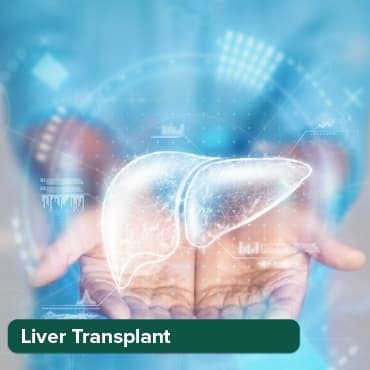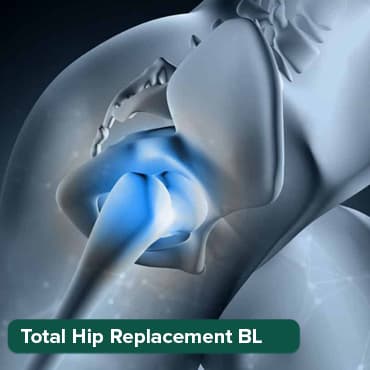
Bypass Surgery vs Angioplasty: Which One is Right for You?
02 May, 2023
 Obaidullah Junaid
Obaidullah JunaidIf you have been diagnosed with coronary artery disease, you may be wondering what your treatment options are. The two most common treatments are bypass surgery and angioplasty. Both procedures are effective in improving blood flow to the heart, but have different benefits and risks. This article explores the differences between bypass surgery and angioplasty to help you decide which is right for you.
Bypass surgery
Bypass surgery, also called coronary artery bypass graft (CABG), is a procedure in which a surgeon creates a new pathway for blood flow around a blocked or narrowed artery. This includes removing a vein or artery from another part of the body such as: B. Remove a leg or chest and transplant it to the heart. New blood vessels bypass blocked or narrowed arteries, allowing blood to flow more freely to the heart.
Bypass surgery is usually recommended for people who have multiple blockages or blockages in the left main coronary artery, the main artery that supplies blood to the heart. It can also be recommended for people with diabetes, as they tend to have more extensive and severe blockages.
Transform Your Beauty, Boost Your Confidence
Find the right cosmetic procedure for your needs.

We specialize in a wide range of cosmetic procedures

Bypass surgery is performed under general anaesthesia and usually requires him to stay in the hospital for 3-5 days. During surgery, the surgeon makes an incision in the chest to access the heart. During bypass surgery, the heart stops temporarily and a cardiopulmonary bypass machine takes over. Once the graft is in place, the heart restarts and the incision is closed.
Bypass surgery is a more invasive procedure than angioplasty, but it has several advantages. One benefit is that it improves blood flow to the heart more effectively. It also tends to have a longer lasting effect than angioplasty, with studies showing that the benefits of bypass surgery can last up to 10 years or more. Bypass surgery may also improve symptoms such as chest pain, shortness of breath, and fatigue better than angioplasty.
However, bypass surgery comes with some risks. It is a major surgery that takes weeks to months to fully recover. There is also the risk of complications such as bleeding, infection, stroke, and heart attack. Additionally, bypass surgery may not be suitable for everyone, especially if you have other health conditions that make surgery risky.
Angioplasty
Angioplasty, also known as percutaneous coronary intervention (PCI), is a minimally invasive procedure in which a thin, flexible tube called a catheter is threaded from an artery in the groin or wrist to the heart. A small balloon at the end of the catheter is inflated to open a blocked or narrowed artery. In some cases, a stent can be used to keep the artery open.
Angioplasty is usually recommended for people with single blockages or narrow arteries. Especially if it is in a small artery or a branch of a large artery. It may also be recommended for people who are not suitable for bypass surgery. B. People with other health conditions that make surgery dangerous.
Although angioplasty is less invasive than bypass surgery, it has some limitations. One caveat is that it may not be as effective as bypass surgery in improving blood flow to the heart. The benefits of angioplasty may not last as long either
As with bypass surgery, there are some studies that show that it can wear off after a year or two. Additionally, angioplasty, like bypass surgery, may not improve symptoms such as chest pain, shortness of breath, and fatigue.
Most popular procedures in India
Atrial septal defect
Upto 80% off
90% Rated
Satisfactory

Coronary Angiogram a
Upto 80% off
90% Rated
Satisfactory

Coronary Angiogram C
Upto 80% off
90% Rated
Satisfactory

Liver Transplant
Upto 80% off
90% Rated
Satisfactory

Total Hip Replacemen
Upto 80% off
90% Rated
Satisfactory

However, angioplasty has several advantages over bypass surgery. One advantage is that it is less invasive and usually has a shorter recovery time. Most people can return to normal activities within a few days after surgery. Another advantage is the lower risk of complications than bypass surgery. Especially for people with other health conditions that make surgery dangerous.
Which one is right for you?
So how do you decide if bypass surgery or angioplasty is the right treatment? Depends on some factors. Bypass surgery may be more appropriate if the left main coronary artery has multiple occlusions or blockages. Bypass surgery is also commonly recommended for diabetics, as they tend to have more extensive and severe blockages. If you have a single blockage or narrow artery, especially if it is a small artery or a branch of a large artery. In some cases, angioplasty may be appropriate.
Your general health also influences the decision. Bypass surgery is a major surgery that takes weeks to months to fully recover. If you have other health problems that would jeopardise surgery B. If you have lung or kidney disease, angioplasty may be a better option.
At the end of the day, your personal preferences will also influence your decision. Some prefer the more invasive but lasting benefits of bypass surgery, while others prefer the less invasive but lasting benefits of angioplasty.
It is important to discuss your options with your doctor and ask any questions. They weigh the benefits and risks of each procedure and help you make the right informed decisions. In summary, bypass surgery and angioplasty are both effective treatments for coronary artery disease, but have different benefits and risks. Bypass surgery tends to be more effective in improving blood flow to the heart and results last longer, but it is a more invasive procedure with a higher risk of complications. Angioplasty is a less invasive procedure with a lower risk of complications, but it is not very effective at improving blood flow to the heart and may not last long. Choosing between bypass surgery and angioplasty depends on several factors, including the severity and location of the obstruction, overall health, and personal preference. It is important to discuss your options with your doctor and make an informed decision that is right for you.
Wellness Treatment
Give yourself the time to relax
Lowest Prices Guaranteed!

Lowest Prices Guaranteed!
